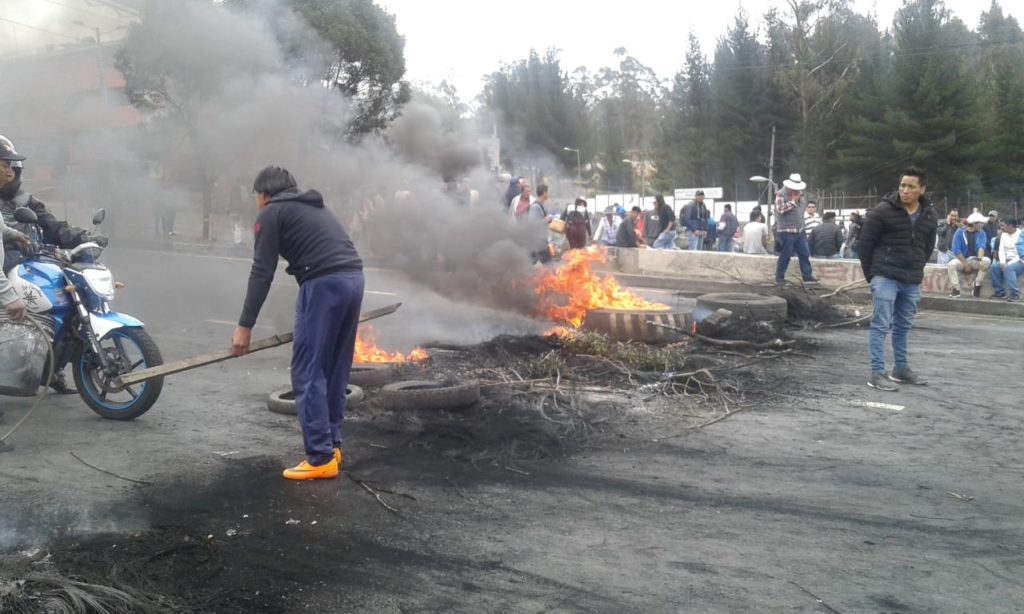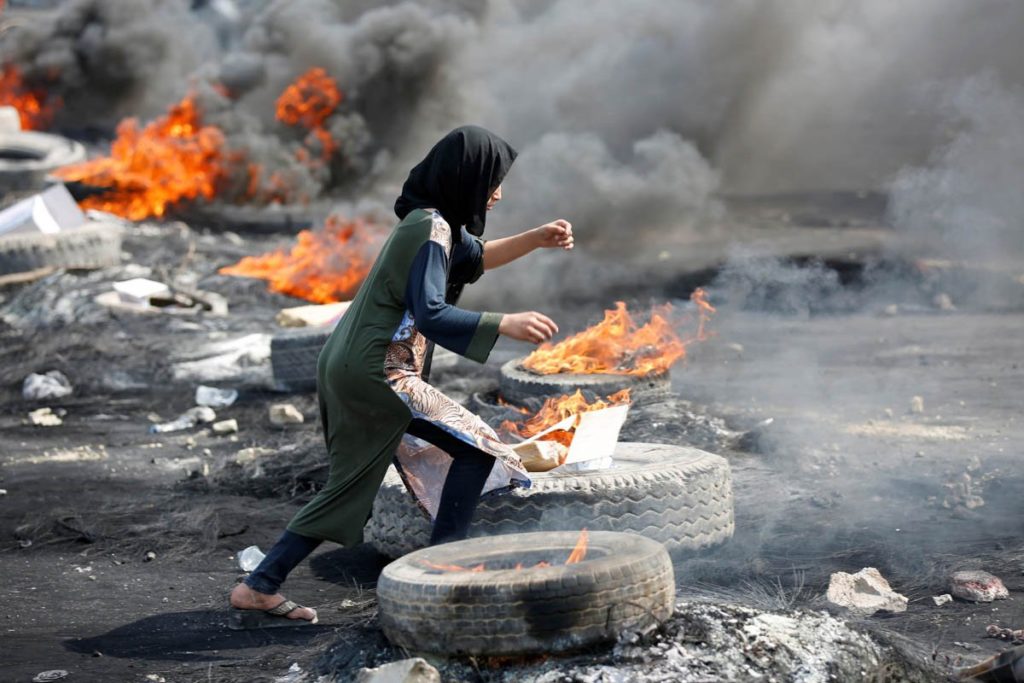Protests against fuel hikes shut down much of Ecuador’s capital and elsewhere Thursday. Led by transportation workers who declared themselves on strike, protesting workers blocked streets in cities around the country and shut down Quito’s main airport. President Lenin Moreno declared a state of emergency Friday and said he would not block down from the cancellation of the fuel subsidy. According to the Associated Press, “The move will raise the price of gasoline to $2.30 a gallon from $1.85 and the cost of diesel to $2.27 from $1.03.”

Members of the Confederation of the Indigenous Nations of Ecuador protested around the country, denouncing the use of military forces and arbitrary detentions of their leaders overnight. The CONAIE has called for a day of mobilization against austerity on October 15. Their first demand: “The total reversal of the letter of intent with the International Monetary Fund and the end of attempts to privatize public companies under the figure of “concessions.”
On the other side of the world, in Iraq, a wave of protests in cities across the country entered their fourth day on Friday. Al Jazeera reports that Iraqi forces used live ammunition to clear crowds, killing at least 44 and injuring over 1,000. “There is corruption and for 14 years there has been no electricity and no services and no water,” one protestor in southern Iraq told the New York Times. “We do not want the political parties, we want nothing from them. Just give us a country, we just want a country to live in.” Al Jazeera also posted some strong images of the protests, including this one:

These surges in popular protest come as over 2,280 people remain detained in Egypt following an anti-government uprising that began September 20. According to the New York Times, “Police stations and prisons are so overstuffed that detainees are being housed in state security camps around greater Cairo, where there are not enough toilets to meet the growing need.”
